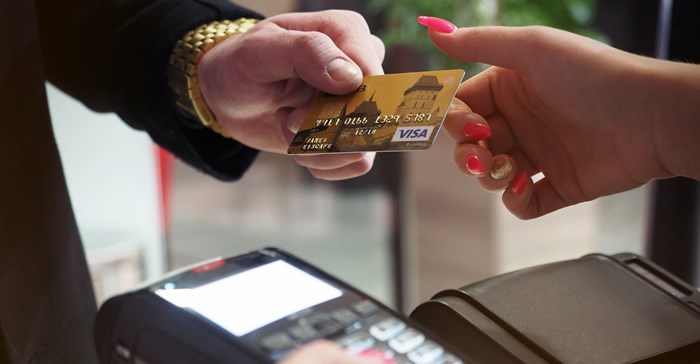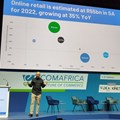Cart abandonment is on the rise and must be urgently addressed by merchants if they are to ensure a seamless customer experience, and to avert lost sales.
At the same time, banks face their own challenges as they are the last defence for both customer and merchant when it comes to fraud protection. However, when authentication throws up too many obstacles, and customers have to deal with false card declines, the fallout can be, at worst, customer attrition. Finding a balanced solution is in everyone’s interest.
False declines (legitimate online transactions that are stopped because they look unusual and could be fraud), are costing banks and merchants fortunes. As shoppers have time-sensitive purchases like tickets for once-off live events, Black Friday or other seasonal sales (especially big-ticket items), or online bookings for an overseas holiday declined, many switch to using their cards from another bank, or simply abandon sales.
In a recent false declines webinar, Judy Conroy, head of risk insights and advisory for the Aite-Novarica group quantified the challenge sharing that their 2020 US survey showed 62% of carts abandoned due to declined cards and 17% of carts abandoned due to friction at checkout amounted to $100bn in lost sales.
In the same webinar, Aite-Novarica group shared that a Q3 2022 survey on consumer online authentication showed that 73% of US consumers blame the issuer when a false decline happens and that a third (34%), said they would consider leaving their bank if it happened when trying to make a purchase on their credit card.
E-commerce reputation on the line
South African consumers are no different, and in a market where online shopping is finally gaining traction, banks are facing a very real challenge. False declines are especially troublesome for people trying to buy time-sensitive purchases such as online bookings for an overseas holiday or big-ticket items.
The declines, while irritating to shoppers, can often be justified by banks, with Sabric annual crime statistics showing 56% of South African ‘card not present’ (CNP) credit-card fraud and 71% of ‘card not present’ debit card occurring abroad in 2021.
“Banks are on the lookout for unusual transactions and ones that may be out of character. For instance, if I am making a larger than normal purchase from an international website, I definitely want my bank to be wary. But even if the first transaction is declined, I would want my bank to take further action.
"Banks should immediately ask themselves what actions should be taken. Constantly reviewing data and assessing risk rules on a regular basis is crucial. The banks that get it right are the ones that will try to address the overall customer experience,” shares Elizabeth Graham, product manager, payments at transaction authentication provider, Entersekt.
South Africans are fairly secure within the SA ecosystem
Graham points out that the South African e-commerce journey is considered fairly secure by global standards, thanks to the use of 3D Secure which is mandated for South African merchants and issuers.
The protocol helps prevent CNP fraud by securely authenticating consumers during e-commerce transactions. But as global merchants are not mandated to use 3D Secure (3DS), South Africans would still be open to fraud when shopping at international brands that are based outside of South Africa.
Gideon de Wet, product head: digital card at Capitec adds local insight saying: “In the 3DS space 10 to 15% of all transactions result in false declines. Many customers cancel or abort the journey even before the challenge (authentication) is completed.
He goes on to say, “The impact of load shedding on false declines due to the network dropping during the transaction is also difficult to measure and solve for in isolation. Lastly, sim-swop fraud is a real online threat in South Africa, and therefore fraud-rules that prevent this type of fraud, could result in a legitimate customer being unable to transact when they’ve just purchased a new sim card. This also adds to the false decline stat.
"The industry is working towards solving this issue, but it relies on the overall ecosystem (merchant, payment provider, ACS provider and issuer) to adapt to provide customers a seamless experience. We have come a long way as an industry, considering we still had knowledge-based questions just six years ago, but there is still a lot of work to be done and a big opportunity to further improve the client experience during online check-out”.
Graham goes on to explain that in South Africa card-on-file scenarios (where your credentials are already stored), such as subscription merchants, will be more likely to raise red flags with rigorous risk tools immediately deployed. South Africans are also more likely to see declines when they make a foreign-currency transaction or they transact with a merchant that doesn't fit with their normal shopping behaviour.
When it comes to the cost of false declines, de Wet says it's hard to quantify as it includes losses in revenue and reputation.
“It is critical to focus on the customer experience, especially when a customer is challenged. Giving cardholders the option to choose a secure authentication option that works best for them and that they feel most comfortable with is key when looking at improved customer experience and getting friction right. When customers are part of the decision-making process, it makes them feel safe and in control which immediately improves their trust in their bank.
“The holy grail is for banks to provide that consistent authentication experience across the entire digital journey. The solution lies in the industry working together to improve the customer experience through mutual partnerships across the entire ecosystem” de Wet concludes.































